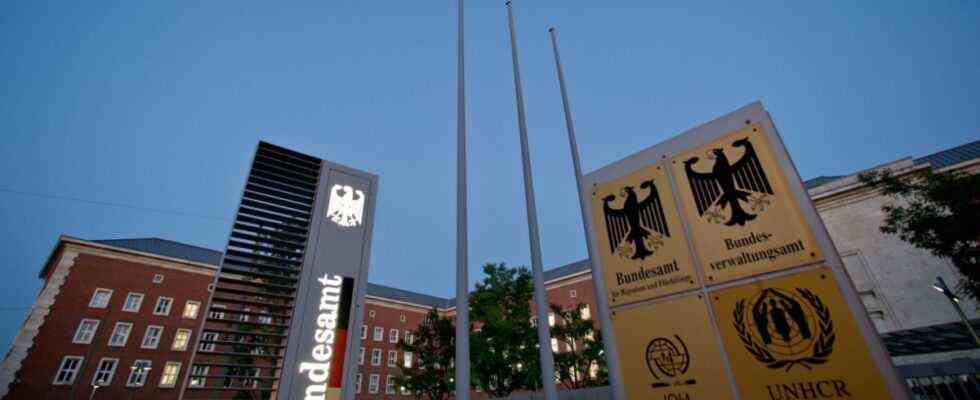Anyone who ever wanted to know how all the refugees who ask for asylum or even protection in Germany are checked, who has always wondered what criteria are used to decide whether they receive this protection, has it on Thursday in the Frankfurt Higher Regional Court Get answers. Answers, however, that even made a defense attorney consider filing an application for exclusion from the public – because what was discussed here touches the security interests of the Federal Republic of Germany. The witness, who worked for the Federal Office for Migration and Refugees (Bamf) as a decision maker in matters of asylum, had just stated that the decision was not about dispelling doubts, but simply about speeding up. It was about quantity, not quality.
In the end, the presiding judge Christoph Koller asked the decision maker from Bamf: “And if someone comes and says he was born on the moon, grew up on Mars and is a Syrian – what would have happened then?” The answer: Presumably he would have received protection. Franco A. laughs in the dock.
Actually, the charges against the Bundeswehr officer Franco A., 32, are being tried before the Frankfurt Higher Regional Court. In December 2015, at the height of the refugee crisis, he disguised himself as an asylum seeker, smeared shoe wax on his beard and asked for asylum. He is a Syrian Christian who is not accepted because of his Jewish-sounding name David Benjamin and is persecuted by IS. And although the man can only speak a few words in Arabic, but French very well, his story was believed. Franco A. was only exposed because he was caught with a gun at Vienna Airport in February 2017. He had already been registered as a refugee for more than a year. Only then did it become apparent that the officer had a double existence. The federal prosecutor’s office accuses him of planning a false flag attack.
Franco A. himself says that he only wanted to uncover the asylum system, which is susceptible to abuse, in an experiment on himself. On Thursday the court found out how easy it was to be allowed to stay in Germany – at least at the peak of the wave of refugees. A decision maker reports as a witness how the notices come about. First there is the hearing where people are asked where they come from and what made them flee. There they are tapped to see whether everything he says is plausible. The decision is then made by a different employee – depending on the files. He never saw the Syrian in question. But, the friendly witness said in court, the instruction was clear: Syrians should receive protection. The decision maker also approved that David Benjamin.
The witness was considered to be one who asked too many questions
The witness is a thoughtful man from Leipzig, 52, who takes his job seriously. He would also have liked to have attended a hearing so that he could form his own opinion, he says. “But that was not planned.” He reports that he was considered to be one who asked too many questions, too often expressed doubts. But it was about speeding up the decision-making process, not raising concerns. After all, hundreds of thousands of refugees were waiting to get a decision on their status. He had seven decisions to make every day. He doesn’t really remember the David Benjamin case.
“If a Syrian says I only speak French, what about it?” asks the judge. “It’s strange,” says the witness. “I am annoyed that I cannot remember. But if I had any doubts, the answer would have been, ‘Focus on the matter.'” It was not about French or Arabic, it was about the persecution. And nobody doubted that with Syrians at the time.
But who checked that a refugee is a Syrian at all? “I’ve had cases like this,” says the decision-maker, “my coordinator let me know that I ask too often. It wasn’t part of the task.” And he doesn’t know if it’s going any better today.
“This is not a reproach against you,” says the judge, “but we are very astonished that no review took place at all.” Because the responsible employee at the hearing does not check the nationality either, and most of the time the refugees did not have any passports with them. For the decision-makers, the main concern was to keep IS supporters or North Africans who pretended to be Syrians away from Germany. The interpreters could tell by the accent. Franco A. only spoke French and pretended to be a Syrian. He had hit a wide swath of incursion. “My role was not to say: I don’t think this is a Syrian,” says the decision maker. The judge is amazed: “In the end, nobody checked. That was the system.”

